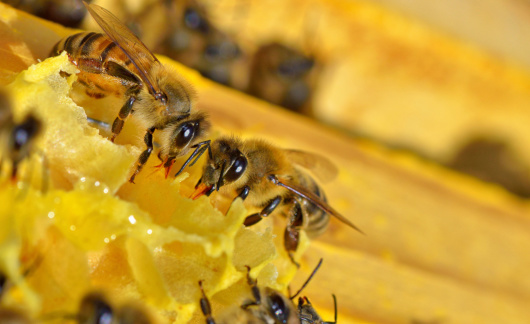Across Europe, farmers are growing increasingly more crops, especially oil crops, such as oilseed rape and sunflowers, putting greater pressure on the supply of honeybee colonies to pollinate them.
Now a new study from the University of Reading in the UK published recently in PLOS ONE, suggests Europe is facing a shortfall of 13.4 million honeybee colonies to properly pollinate its crops.
Scientists at Reading’s Centre for Agri-Environmental Research (CAER) say the demand for insect pollination is growing at five times the rate of growth in honeybee pollination services.
Over 50% of European countries do not have enough honeybees
Led by Simon Potts, Professor of Biodiversity and Ecosystem Services at CAER, they compared the number of active honeybee colonies in 41 European countries to the demand for pollination services over the period 2005 to 2010, and found:
- Over half of European countries do not have enough honeybees to properly pollinate their crops.
- These countries include France, Germany, Italy and the UK which only has a quarter of the honeybee colonies it needs for crop pollination.
- In fact, say the researchers, the UK’s honeybee shortfall is second only to that of Moldova – one of Europe’s poorest nations – whose economy is some 300 times smaller than the UK’s.
- Overall, Europe only has two-thirds of the honeybees it needs for proper crop pollination – the shortfall amounts to some 13.4 million colonies or hives.
‘Growing disconnect’ between agricultural and environmental policies
Prof. Potts says there is a “growing disconnect” in Europe between agricultural and environmental policymaking, and notes:
“Farmers are encouraged to grow oil crops, yet there is not enough joined-up thinking about how to help the insects that will pollinate them.”
The problem is not that a shortage of honeybees means crops will not be pollinated at all, indeed ‘wild’ pollinators like hoverflies, solitary bees and bumblebees can be very effective pollinators. The problem is reliability of supply, as habitats of wild pollinators come under threat.
Thus the study suggests if agriculture in Europe is to become increasingly reliant on wild pollinators, then they need protection.
Prof. Potts says if we don’t act now, we “face a catastrophe in future years,” and urges:
“We need a proper strategy across Europe to conserve wild bees and pollinators through habitat protection, agricultural policy and farming methods – or we risk big financial losses to the farming sector and a potential food security crisis.”
The team at Reading has also been looking at the economic impact of pollination services to the British apple industry.
In a separate study they found that in the case of two British apple varieties alone – Gala and Cox – insect pollinators add around £37m (€45m, $61m) to their total crop value by increasing fruit yield and quality.

